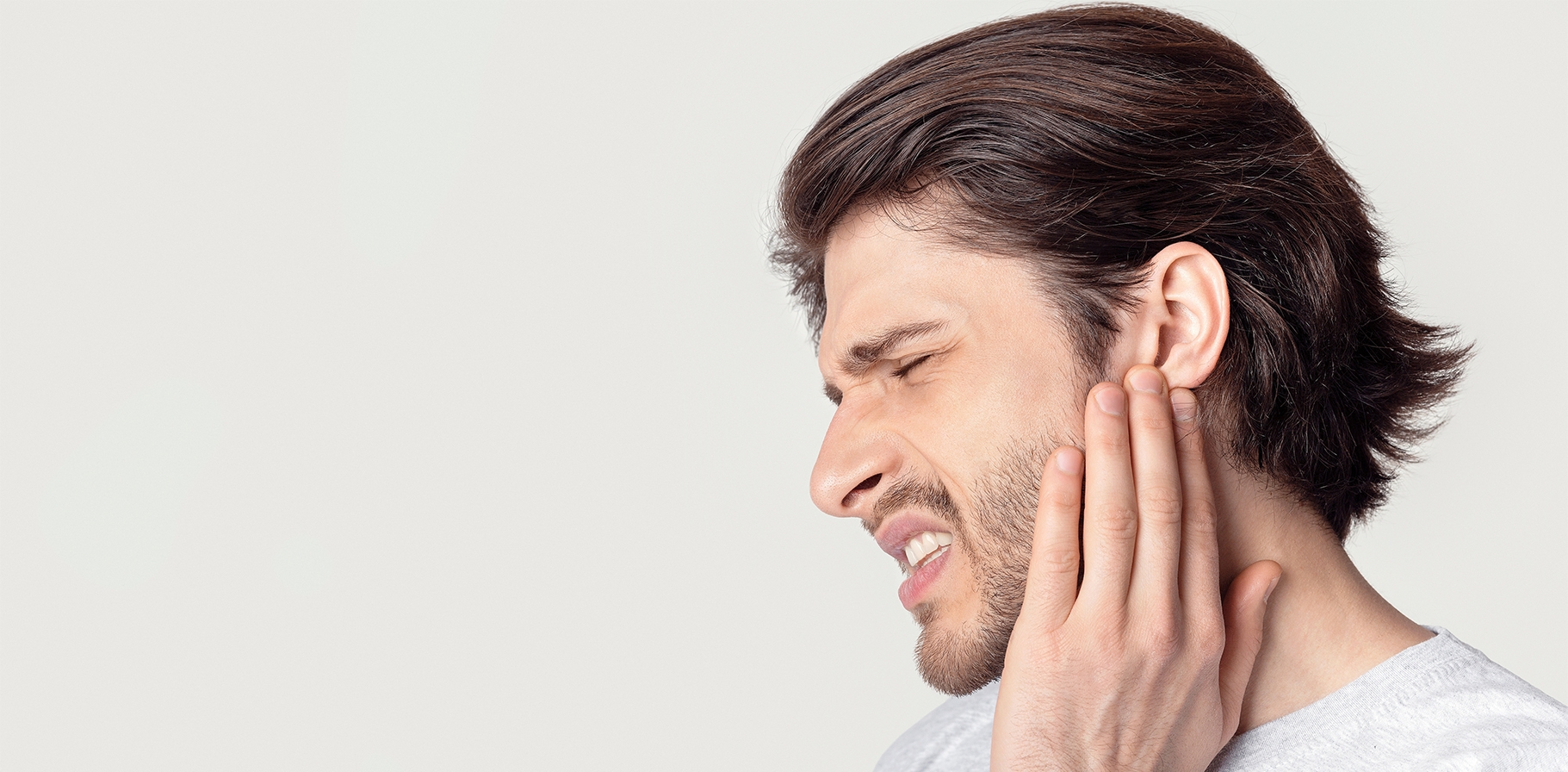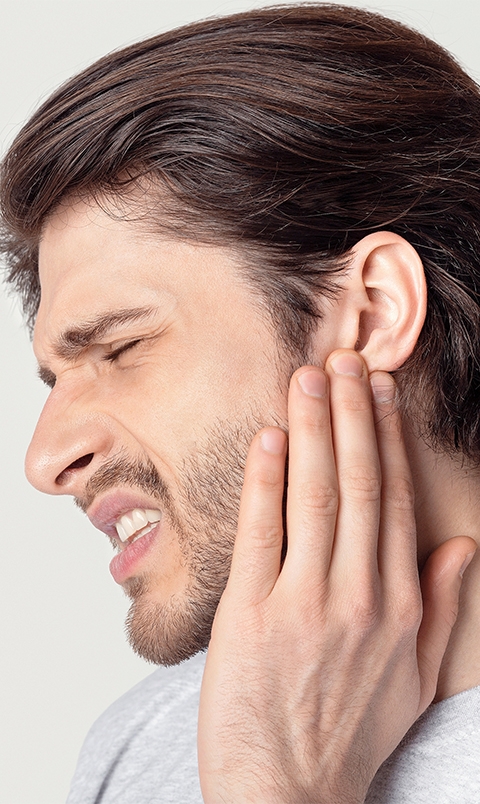A Comprehensive Guide to What Causes Ear Pain


A Comprehensive Guide to What Causes Ear Pain
15 min
Published April 17, 2025
Ear Pain
There’s something about an earache that grabs your attention like few things can. Ear pain is a common reason many of us seek care, and it can stem from a variety of causes. Sometimes, it's triggered by an infection, while other times, it might hint at something more profound. The good news? Most ear pain isn't severe and can often be treated effectively with simple steps. Whether through medications, soothing home remedies, or gentle therapies, relief is usually closer than you think. Stay tuned as we unpack what might be causing that ache and how to feel better fast.
What’s Behind That Earache?
Ear pain can be a puzzling sensation, ranging from mild discomfort to a sharp, more intense ache. Known medically as “otalgia” (oh-TAL-gee-uh), ear pain can signal several underlying factors. It may stem from an ear infection, irritation, or an issue elsewhere in the body. The pain can show up as constant or come and go in waves. Fortunately, most ear pain resolves quickly; however, persistent discomfort may indicate it’s time to seek further evaluation from your audiologist.
What Causes Ear Pain?
Ear pain can disrupt your day more quickly than you think. Sometimes, it's a dull throb. Other times, it’s a sharp, relentless ache that’s hard to ignore. What many people don’t realize is that ear pain can originate from various sources – some related to the ears themselves, while others may indicate an issue elsewhere in the body.
While most cases ease with time, and some can be managed with simple at-home remedies, persistent or severe discomfort should be checked out by a healthcare professional. Suppose ear pain persists for more than a few days or becomes increasingly intense. In such cases, an ear specialist can identify the issue, rule out more serious concerns, and prevent potential complications.
Some of the most common culprits behind ear pain and discomfort include:
- Earwax Buildup – When earwax accumulates, the excess can press on sensitive parts of the ear, causing discomfort or even temporary hearing loss.
- Middle Ear or Inner Ear Infection – Ear infections can occur when bacteria or a virus from a cold, sore throat, or other type of infection spreads, causing congestion and inflammation in the inner ear.
- Eustachian Tube Dysfunction – If the narrow tubes connecting the throat to the middle ear don't work correctly, the reaction can result in discomfort due to changes in pressure.
- Foreign Object in the Ear – From a stray bead to an accidental bug, objects that don’t belong in your ear can cause significant pain.
- Barotrauma – Pressure changes from flying, scuba diving, or even driving through mountainous terrain can put some stress on your ears.
Sometimes, ear pain can originate from a source outside the ear. Other conditions that can create an earache include:
- Sinusitis – Inflamed sinuses can create excess pressure that spreads to the ears.
- TMJ Disorders – Joint problems in your jaw often send pain to the ears since these two parts of the body are closely connected.
- Sore Throat or Tonsillitis – An irritated throat may cause discomfort that spreads to your ears due to some shared nerve pathways.
- Toothaches or Dental Problems – Pain from your teeth or gums can sometimes be deceptive and feel like it's coming from your ears.
What to Do for Ear Pain
Nobody likes feeling like their ears are doing their own thing, especially when discomfort creeps in and refuses to budge. Fortunately, numerous options are available to help alleviate ear pain. Depending on the underlying cause, treatments may range from prescription solutions to simple home remedies you can try today. Here's what to do for ear pain when it’s throwing you off balance:
- Over-the-Counter Medication – Pain relievers like acetaminophen (Tylenol®) or ibuprofen (Advil®) can effectively reduce discomfort and inflammation.
- Prescription Medications – Your healthcare provider may prescribe specific treatments, such as antibiotics, antifungals, or corticosteroids, to address infections or other conditions causing ear pain.
- Warm or Cold Compresses – Applying a warm cloth or an ice pack can provide quick, soothing relief by improving blood flow or reducing inflammation.
- Elevating Your Head – Propping yourself up when resting helps reduce pressure buildup in your ears.
- Ear Drops – Over-the-counter ear drops may also help; however, be sure to consult a doctor, especially if you suspect a ruptured eardrum.
When to Call the Doctor About Ear Pain
Dealing with ear pain can be frustrating, especially when it begins to interfere with your daily life. While minor discomfort often resolves on its own, there are crucial moments when seeking out medical attention from an ear doctor becomes necessary. Recognizing the signs that something more serious may be at play is essential for protecting your health and preventing complications. Keep these situations in mind when deciding if it’s time to make that call.
- Persistent ear pain lasting more than three days.
- Fever of 103°F (39.4°C) or higher.
- Fluid or pus draining from the ear.
- Noticeable hearing loss or muffled hearing.
- Severe sore throat accompanying ear discomfort.
- Nausea, vomiting, or dizziness.
- Swelling, redness, or discoloration around the ear.
- A child with a foreign object in their ear, especially if removal attempts haven’t been successful.
Don't Ignore the Signs – Contact AudioNova
That nagging ear discomfort or persistent muffled hearing can impact everything from enjoying conversations to focusing on daily tasks. While some ear issues may resolve on their own, lingering symptoms often need expert attention. Getting the proper care can bring relief and help prevent future complications. At AudioNova, our skilled specialists are here to address your concerns and provide solutions you can trust. Don’t let that irritating ear pain dictate your day – schedule an appointment at an AudioNova clinic today to get back to feeling your best!




